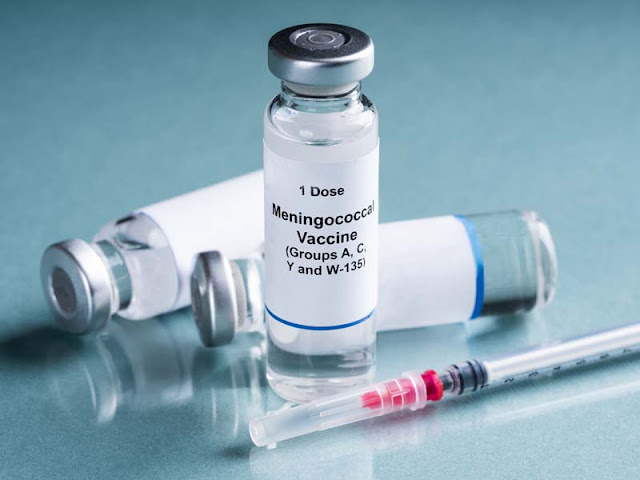Integrating High-Sensitivity Troponins, NT-proBNP, and Emerging Molecular Signatures for Personalized Risk Assessment and Therapeutic Decision-Making
 |
| Cardiac Biomarkers |
Heart disease is one of the
leading causes of death around the world. Timely diagnosis and management of cardiovascular
conditions like heart attacks, heart failure, etc. can help improve outcomes
and save lives. In this regard, cardiac biomarkers have emerged as invaluable
tools for clinicians over the past few decades. These biomarkers provide
objective evidence of underlying heart damage or injury that can help guide
diagnostic and therapeutic decisions.
What are Cardiac Biomarkers?
Cardiac biomarkers refer to
proteins or other substances that are released into the bloodstream when the
heart muscle is damaged or stressed. They can serve as detectable signs or
indicators that something is affecting the structure or function of the heart.
Some of the most commonly measured cardiac
biomarkers include troponin, creatine kinase-MB (CK-MB), myoglobin,
natriuretic peptides (BNP and NT-proBNP), and cardiac-specific troponins I and
T. Each biomarker has a distinct role based on the type of heart condition,
timing of blood draw, and other factors. Measuring multiple biomarkers together
can provide a more complete picture of what's happening in the heart.
Role in Diagnosis of Acute
Coronary Syndromes
The prompt diagnosis of acute
myocardial infarction (AMI) or heart attack is of utmost importance to guide
critical care and intervention. Over the past few decades, detection of cardiac
troponins has become the gold standard for diagnosing AMI. Troponin levels rise
within 3-4 hours after the onset of coronary ischemia and remain elevated for
several days after the injury. This makes cardiac troponins far more sensitive
and specific than older biomarkers like CK-MB for confirming even small amounts
of myocardial necrosis. Troponin testing along with clinical history, ECG
changes, and other factors has revolutionized the diagnosis of acute coronary
syndromes like unstable angina versus NSTEMI versus STEMI heart attacks.
Role in Diagnosis and Management
of Heart Failure
Natriuretic peptides like BNP and
NT-proBNP are extremely useful for diagnosing and managing heart failure.
Levels of these biomarkers rise when the heart is under increased stress from
volume overload or pressure overload due to conditions like dilated
cardiomyopathy or hypertension. BNP and NT-proBNP testing helps confirm or rule
out suspected heart failure in patients presenting with dyspnea or edema.
Serial monitoring of natriuretic peptide levels also helps guide medication
adjustments and determine response to treatment over time in chronic heart
failure patients. A significant drop or rise in biomarker levels can indicate
whether a patient's heart failure status is improving or worsening, requiring
interventions.
Prognostic Role in Cardiovascular Disease
Several studies have shown that
higher levels of certain cardiac biomarkers are associated with poorer short
and long-term outcomes in patients with various cardiovascular conditions. For
example, persistently elevated troponin levels following an AMI are linked to
larger infarct size, reduced ejection fraction, and higher risk of recurrent
ischemic events and mortality over subsequent years. Similarly, natriuretic
peptide levels provide powerful prognostic information in heart failure -
higher baseline levels predict worse clinical status and higher risk of
rehospitalization or death. Some biomarkers like high-sensitivity troponin
assays are now being investigated for their potential to identify individuals
at risk of future cardiovascular events among asymptomatic populations as well.
The prognostic value of cardiac biomarkers adds an important dimension to
clinical risk stratification.
Use in Guiding Therapy
As our understanding of cardiac
biomarkers evolves, opportunities are emerging to use them not just for
diagnosis but also monitoring response to treatment and guiding therapeutic
decision making. For example, cardiac resynchronization therapy (CRT) is an
important treatment for heart failure patients with conduction delays. However,
up to 30% of patients do not demonstrate meaningful clinical improvements with
CRT. Serial monitoring of natriuretic peptide levels following CRT implantation
may help identify "non-responders" earlier to guide attempts to
optimize therapy or assess need for device upgrade. Similarly, in AMI patients,
changes in troponin levels during hospitalization in response to reperfusion
therapy provide clues on infarct size reduction and likelihood of complications
to help risk stratify patients. As biomarkers continue helping personalize
cardiovascular care, treatment outcomes are expected to further improve.
Get More Insights Here
https://coolbio.org/pharmacogenomics-a-promising-new-approach-to-personalized-medicine/


Comments
Post a Comment